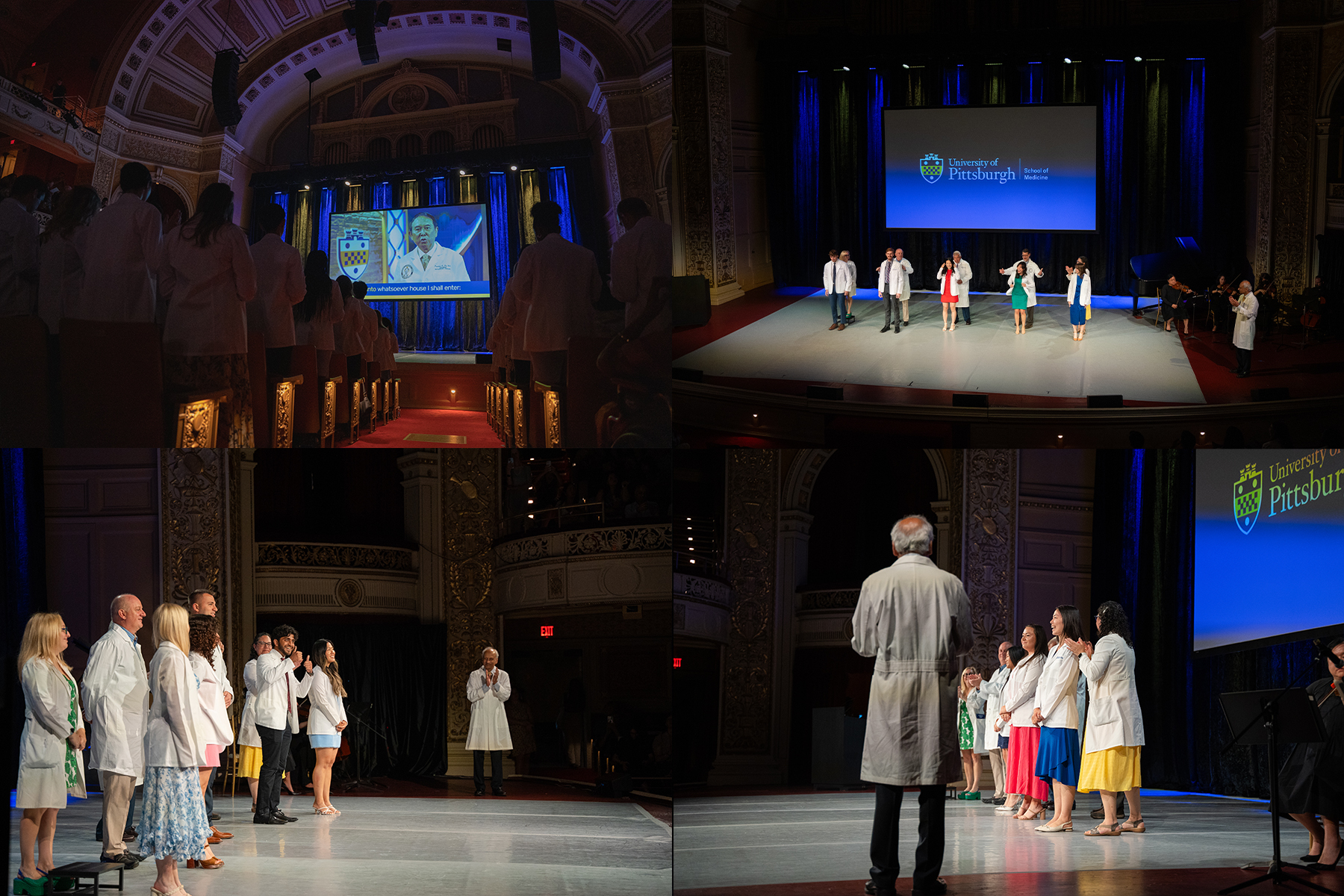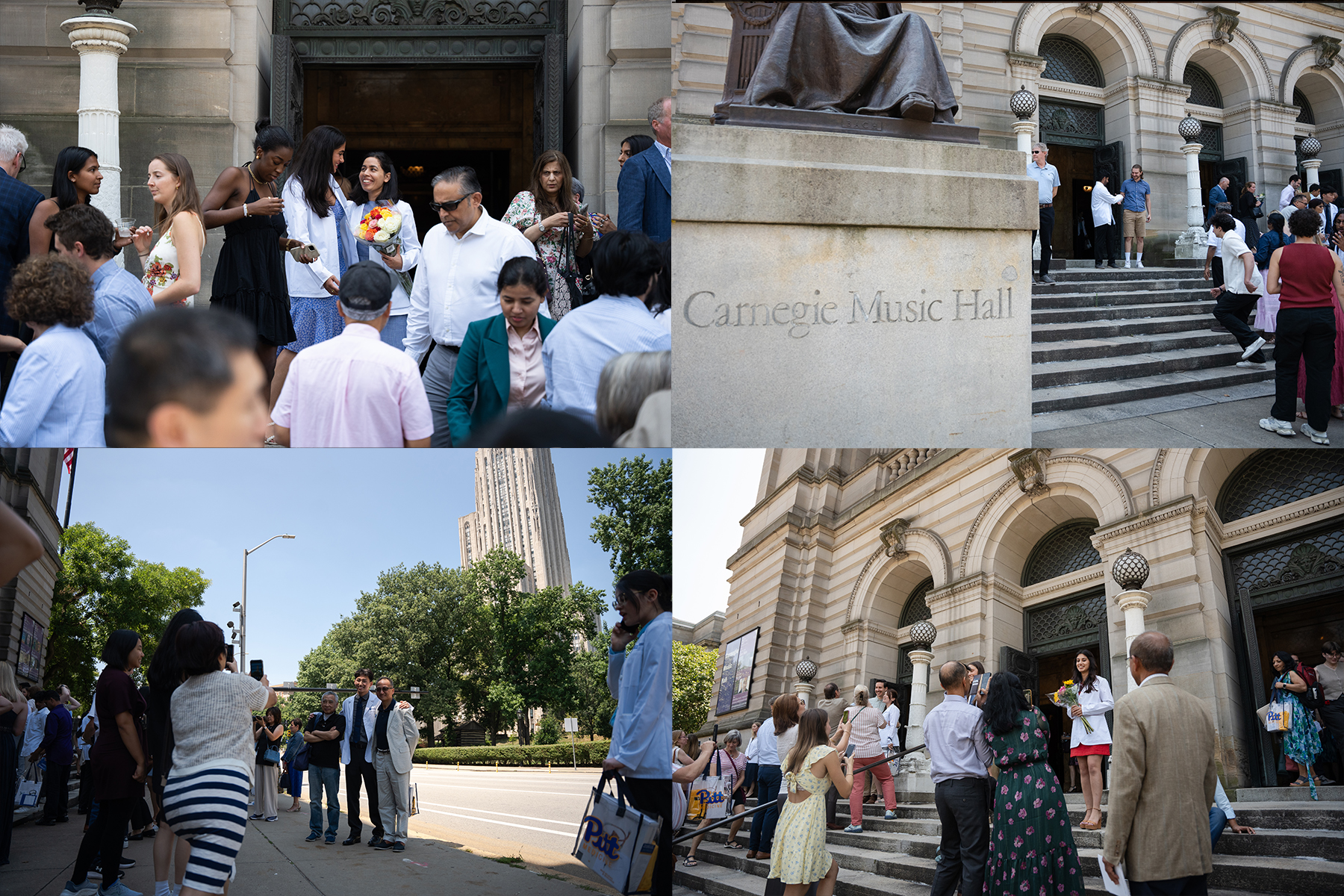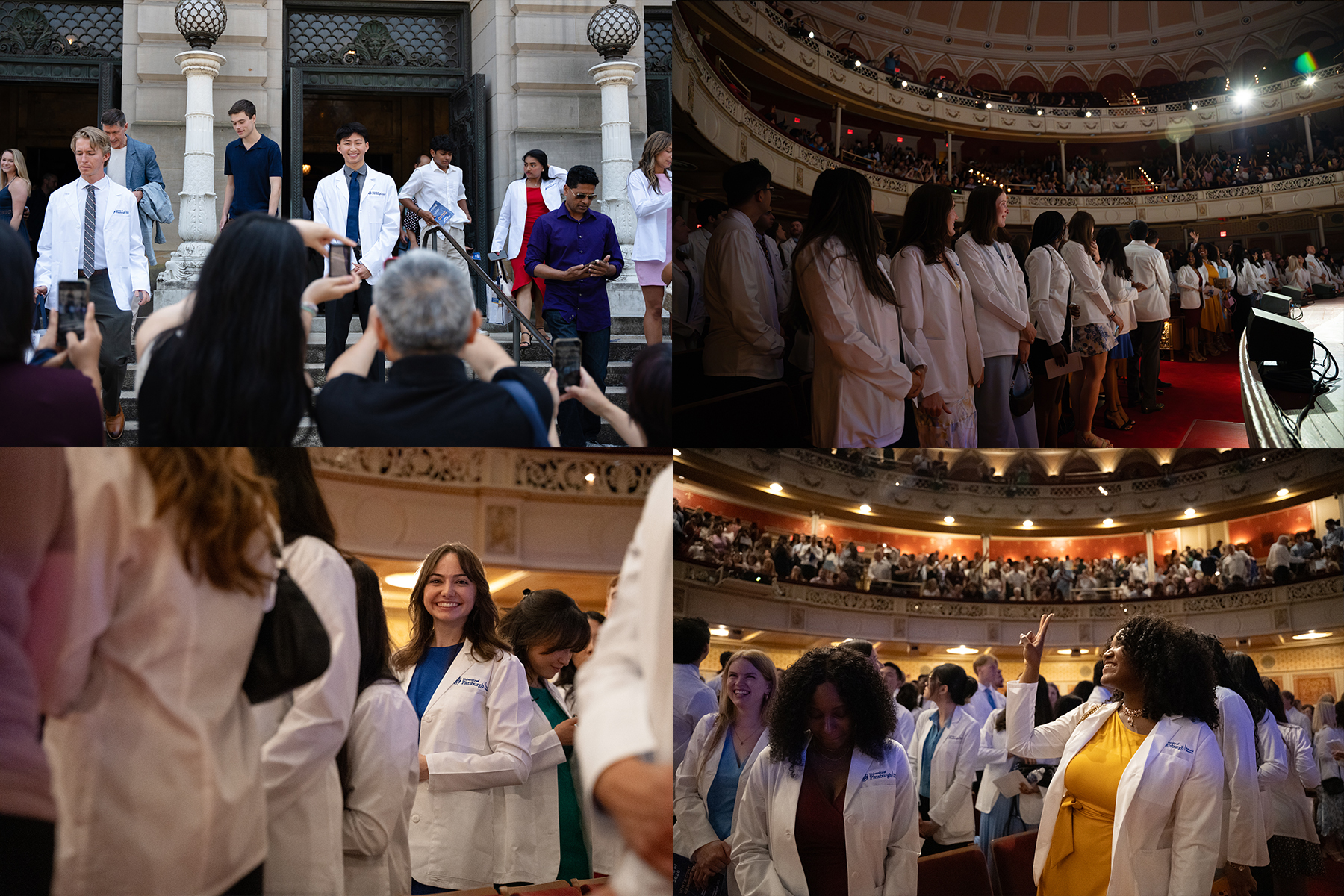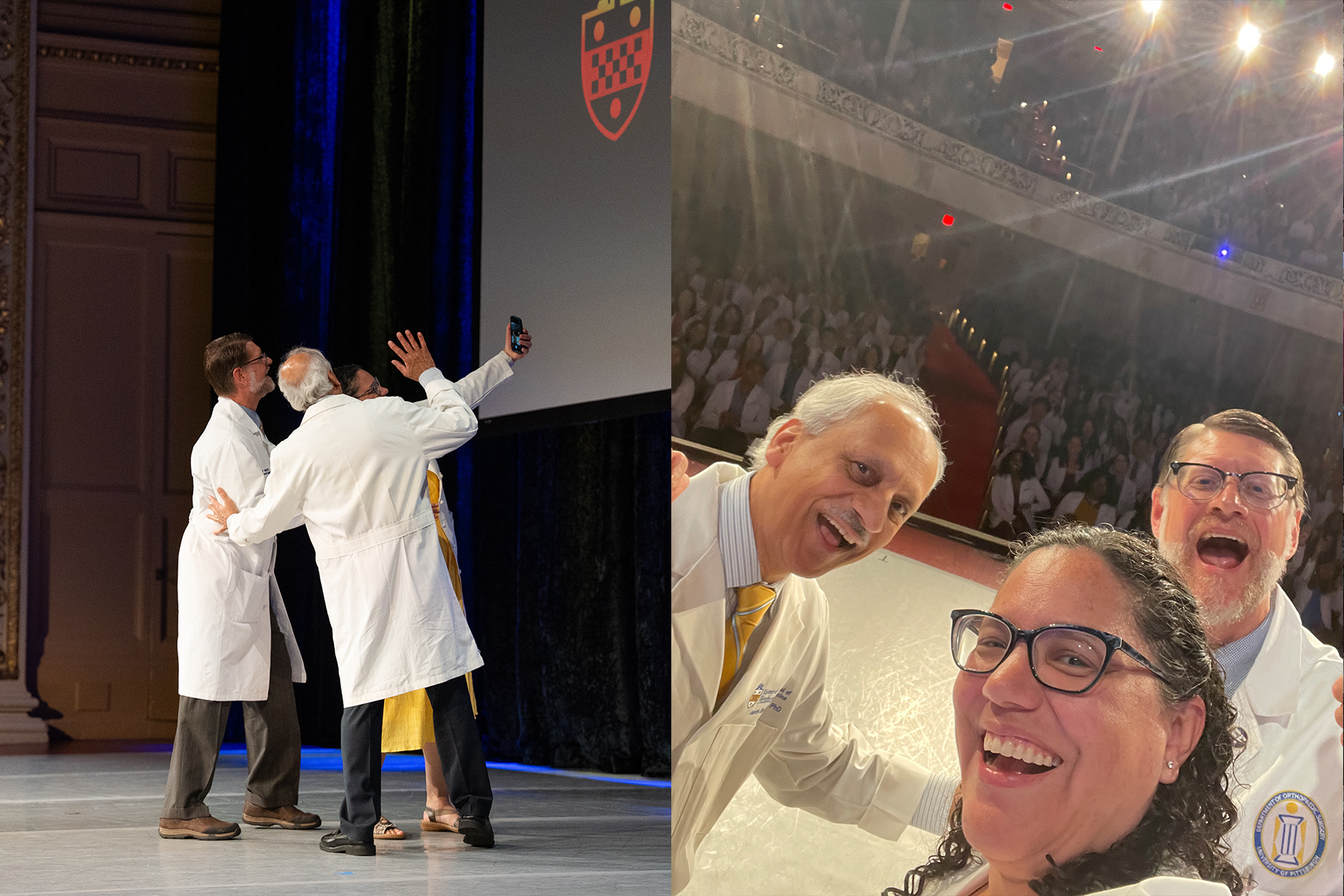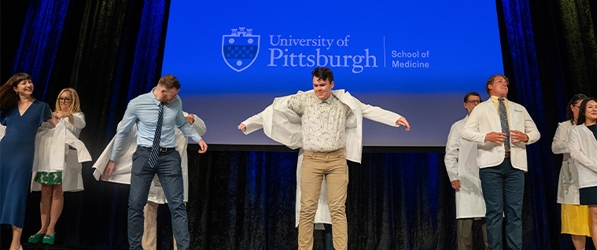On Sunday, July 28, the Pitt Med community celebrated its newest members at the White Coat ceremony for the 148 MD students entering the Class of 2028 at the Carnegie Music Hall in Oakland. The event was made possible with support from the Dr. Freddie and Hilda Pang Fu Endowment at the University of Pittsburgh.
Fu (1950-2021), a Pitt Med faculty member for more than three decades, was the Distinguished Service Professor of Orthopaedic Surgery, David Silver Professor and chair of the Department of Orthopaedic Surgery, head team physician for the University of Pittsburgh, and founder of the UPMC Sports Medicine program. The Fus conceived the ceremony to welcome the students to Pittsburgh while giving them a taste of the cultural richness the city has to offer.
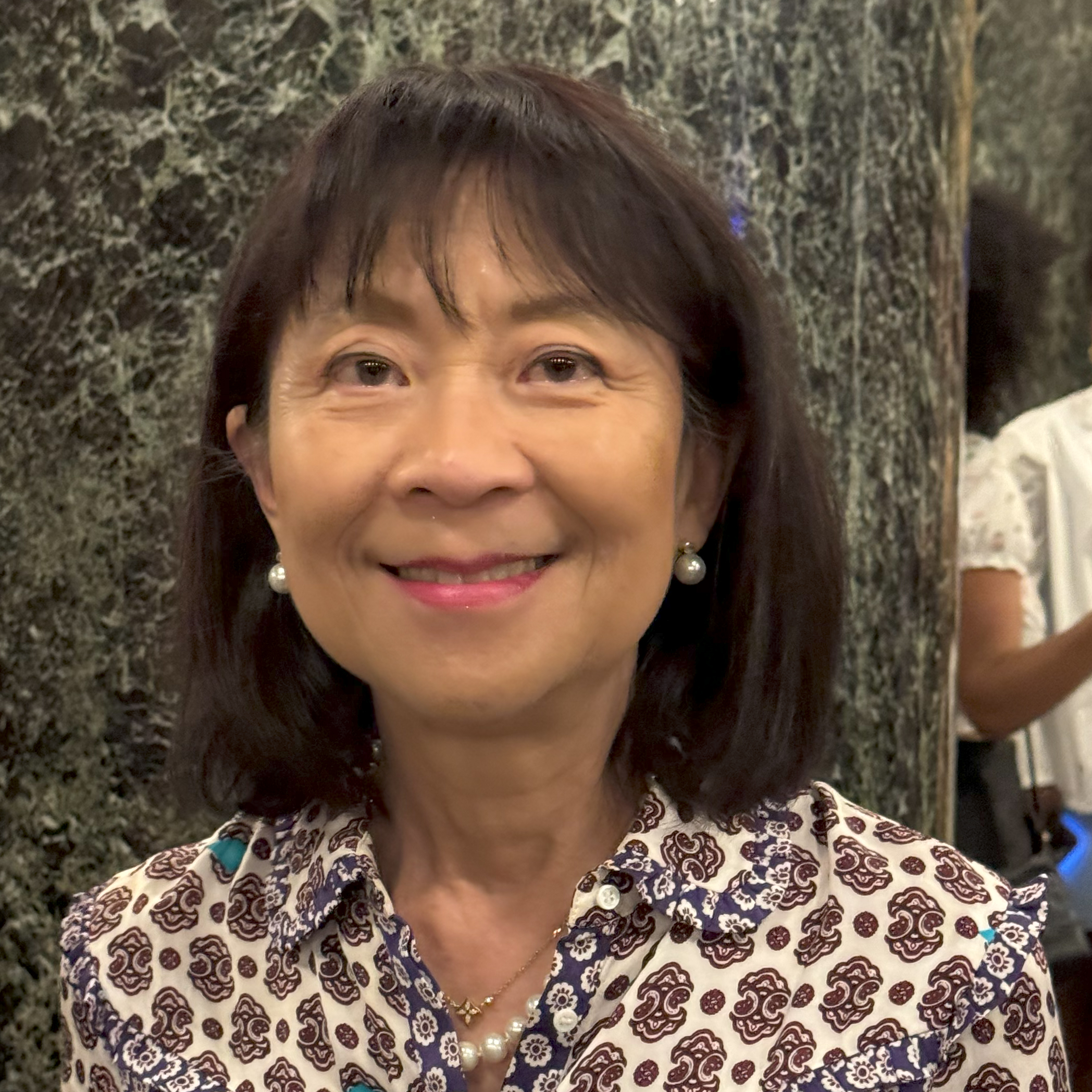
During the event, a traditional rite of passage to mark new medical students’ entry into the field, each student received a white coat, accompanied by music from members of the Pittsburgh Symphony Orchestra.
The ceremony included the recitation of the Hippocratic Oath by the students and other physicians in attendance, led by a video of Freddie Fu, as well as speeches and short performances by members of Pittsburgh Ballet Theatre, MCG Jazz and Pittsburgh Opera.
The white coats were presented by David Metro, Pitt Medical Alumni Association board president, senior vice chair for education and faculty affairs, and professor, Department of Anesthesiology and Perioperative Medicine; Alda Maria Gonzaga, associate dean of student affairs and professor of medicine and of pediatrics; Jack Smith, trustee emeritus; Suzanne Templer, assistant dean for student affairs and associate professor of medicine; and Kurt Weiss, vice chair of translational research and associate professor, Department of Orthopaedic Surgery.
As the students took the stage in groups of five, their families and friends cheered enthusiastically, capturing the moment on camera, often while juggling bouquets and babies.
Gonzaga used the city’s 446 bridges as a metaphor for the journey on which the new medical students are about to embark.
She said that each student’s previous experiences were “the pillars of each of your unique bridges. And it is because of those pillars that you've been selected to be a part of this community. Because we see the potential in each of you to become exemplars in medicine as healers, advocates, innovators and leaders. At the end of the day, what we want you to take away is that you belong here.”
Anantha Shekhar, senior vice chancellor for the health sciences and John and Gertrude Petersen Dean, School of Medicine, assured the students: “Over the next four years, we will work with you every step of the way and help you complete this journey.”
He continued: “There'll be a journey that you will take with hundreds of patients who will be in their most vulnerable state. It's a journey that sometimes might take you to the birth of a beautiful baby at [UPMC] Magee-Womens Hospital all the way to sitting for the last few hours of someone in hospice, but that's what's going to change you.”
The students, he said, will learn “how to maintain equanimity when you'll have challenging situations. How to address health disparities when you see clear injustice. How to be compassionate in all cases, which is in how to overcome your own fatigue, your own burnout, and your own challenges; how to focus on helping your spouse, your family and everyone else that you serve as a physician.”
The white coats doctors wear, Shekhar noted, have also taken a journey: They used to be black. He said that in the late 19th century they became white because of the discovery of antiseptics and a resultant drop in patient mortality.
Weiss, the keynote speaker, spoke of his own journey from patient to physician-scientist, having been treated for an osteosarcoma that spread to his lungs, and the experimental treatment that saved his life.
His messages, drawn from lessons from Freddie Fu, who was his beloved mentor and colleague, included the charge to do what you love.
“It breaks my heart and frankly irritates me a little when I ask medical students and residents what they want to do when they grow up and I get a response like, ‘Well, we’re going to need a lot of arthroplasty surgeons,’ or ‘There’s a big demand for cardiologists’ or something like that,” he explained.
“With all due respect to my friends and colleagues who trained at that hallowed institution, I call that a Harvard answer. That is a response that may be absolutely true but doesn't answer my question. So, when you're on my service, don't give me a Harvard answer. Give me a Pittsburgh answer.
“I want to know what gets you going. What are you passionate about? What methodology fascinates you? What sort of patient will you cheerfully devote your life to serve every day for the next few decades? I challenge you to find these answers and challenge us, your teachers, to help you find them. If you accomplish that, you will be exactly what the world needs. And you will set it on fire with your passion.”
Chenits Pettigrew, associate dean for diversity, equity and inclusion, School of Medicine, spoke about the tradition Shekhar developed of having each class of students write its own oath of professionalism. This class’s finished oath will be formally presented on Friday, and it will be printed and posted in the dean’s office, he said.
“The Class of 2028 will revisit their class oath again as part of their pinning ceremony, which marks their transition to their clinical education,” Pettigrew said. “The class oath writing experience is a critical step in understanding that being a physician is not just what you do, but it is who you are becoming.”
The event was followed by a reception hosted by the Medical Alumni Association, and students received gift bags including some Pitt Med essentials: stethoscopes and Terrible Towels. Many posed for photos afterward with the new stethoscopes over their white coats.


